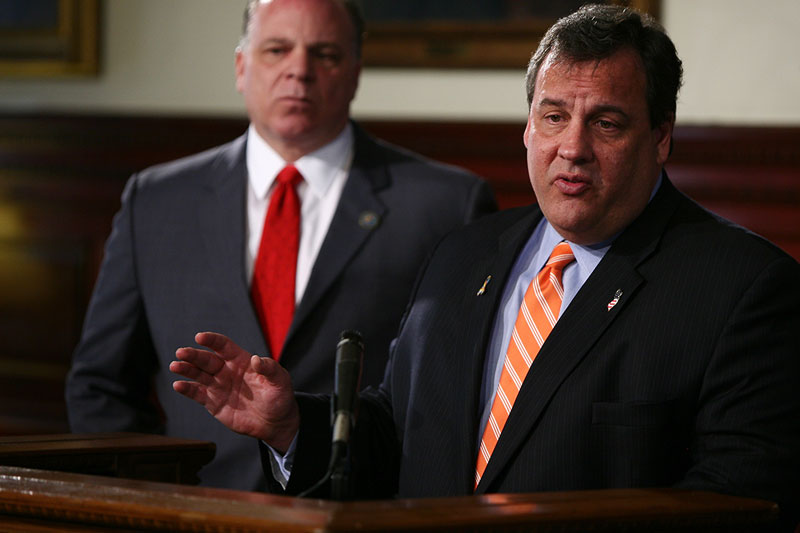The President’s Commission on Combating Drug Addiction and the Opioid Crisis – led by New Jersey Governor Chris Christie – has been tasked with developing new ways to fight the opioid crisis. The Commission released its newest report this past Wednesday.
“The reason behind the urgent recommendations presented to you today by this Commission is that the leading cause of unintentional death in the United States is now drug overdose deaths,” Christie in her opening letter wrote addressing Trump. “Without comprehensive action, including your national public health emergency, the death count will continue to rise. I know that is unacceptable to you. I know you will win this fight for the people who elected you.”
The report follows President Trump’s designation of the opioid epidemic as a public health crisis last week, and lowering some regulatory barriers that had stood in the way of addressing these addiction deaths. Trump had stopped short of designating the epidemic as a national emergency, as per the commission’s recommendation in July.
The new report does not call for an upping of this designation, however, it does call on the Congress to restart the Public Health Emergency Fund, which is supposed to provide funds to fight the public health crises, but has been unfunded in the several past years. It also calls for another block granting funds for the epidemic to the states.
“Creating uniform block grants would allow more resources to be spent on administering life-saving programs. This was a request to the commission by nearly every governor, regardless of party, across the country,” wrote the commission members.
Beyond all the additional funding, a centerpiece of the commission’s proposal is an “expansive national multi-media campaign” to combat the opioid misuse. The report also pointed to the success of certain projects like Idaho’s Meth Project, which had helped to contribute a 56 percent decline in the teenage meth use. A federal campaign, the commission had noted, could be modeled after the FDA’s anti-smoking campaign, “The Real Cost,” which was associated with an impressive 30 percent decrease in smoking initiation of the Americans between 11 and 18.
The effectiveness of such campaigns has been contentious. Attorney General Jeff Sessions also drew criticism from the left when he had suggested bringing back D.A.R.E., the anti-drug education program from the 1980s. Programs like the mid-2000s National Youth Anti-Drug Media Campaign have had questionable successes, with an NIH study finding that the NYADMC had no short-run effects and may have encouraged teens to use marijuana in the longer run.
“It completely depends on how it’s rolled out,” Carrie Wade had said, harm reduction policy director for the R Street Institute. “Some campaigns, there’s a lot of controversy that they actually work. The [D.A.R.E.] campaign was completely ineffective. … But the truth initiatives campaign for nicotine, there’s evidence that show those actually work.”
“As an overall thing, it’s probably putting a lot of money and funding into something that is not going to be very effective, but it totally depends on how it’s rolled out,” she said.
Drug courts are also central to the commission’s vision. These so-called “alternative-to-incarceration courts” address only the minor drug-associated crimes through suspended sentences and the mandatory treatments, rather than shuffling these addicts through the prison system. A report from the U.S. Sentencing Commission noted that they are the “longest running and most prevalent of all state problem-solving courts,” with at least 2,000 at the state level.
The report also noted that “44% of U.S. Counties do not have an adult drug court.”
Dr. Sally Satel, a practicing physician and resident scholar at the American Enterprise Institute, said, “One of the biggest problem with treatment is that dropout rates are very high, up to 60 percent in 6 months. People need at least one year of serious treatment with supervision. If they have committed a crime … then they are eligible for drug courts and that option is a boon for them.”
Another proponent of the drug courts is David Murray, co-director of the Center for Substance Abuse Policy Research. He said that “They’re in principle the right thing. This is both a criminal justice and a public health urgency. So use the full scope of tools that criminal justice and public health can be brought to bear here.”























